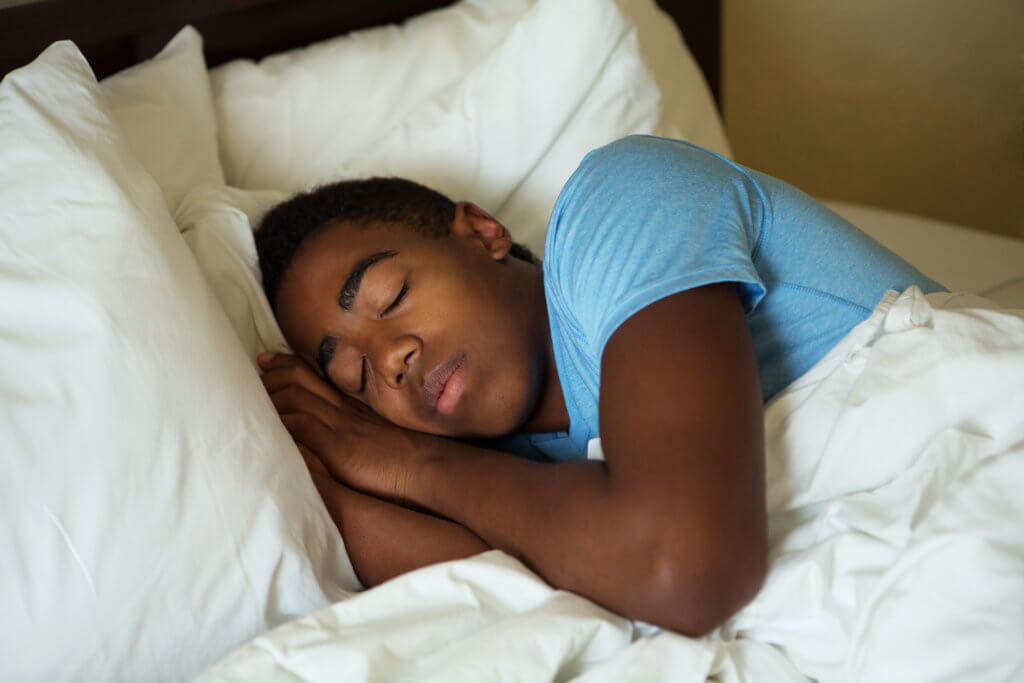DARIEN, Ill. — Does getting less sleep lead children to make questionable movie choices? Parents often go to great lengths to shield their children from inappropriate topics. However, new research suggests lack of sleep may lead to increased impulsivity among preteens, raising their risk of exposure to mature, R-rated content.
This new joint research project found that objectively measured short sleep duration partially moderates the association between impulsivity and mature-rated media usage among early adolescents.
A proper sleep schedule is key to strong mental health, well-being, and overall healthy behaviors at an any age, but adequate shuteye is especially important during adolescence. While that much has been known for some time, these latest findings reveal that higher impulsivity was predictive of more R-rated movie watching, and shorter sleep duration was also predictive of more mature video gaming and R-rated movie watching a year later.
Among adolescents in the study, only 19 percent were getting more than eight hours of sleep on average. Structural equation modeling, meanwhile, helped researchers determine that sleep duration moderates the association between impulsivity and R-rated movie watching. This was accomplished after study authors accounted for bedtime screen use, parental monitoring, and demographic covariates.
“We found that impulsive adolescents with shorter sleep duration are more likely to be exposed to R-rated content,” says lead author Linhao Zhang, who is a doctoral student in the department of human development and family science at the University of Georgia in Athens, in a media release.

To promote optimal health, the American Academy of Sleep Medicine advises children between ages six and 12 should get nine to 12 hours of sleep on a daily basis. Teens, on the other hand, should sleep eight to 10 hours on a regularly.
In all, this longitudinal study spanned three years and involved 2,757 early adolescents between ages nine and 13 years-old; half of the children were male. The average age of the participants was 12.9 at the three-year follow-up mark. The preteens received a Fitbit watch to wear for at least seven days at the two-year follow-up point, in order to obtain an objective estimate of sleep duration. Participants also filled out surveys asking about impulsivity at the two-year follow-up, as well as questionnaires covering R-rated movie watching and mature video gaming at both the two-year and three-year marks.
Study authors posit exposure to mature-rated media in youth is associated with decreased empathy and aggressive behaviors later on in life. Shorter sleep duration is also associated with lower emotional regulation and attention span – which means attaining better sleep can potentially help improve mental health, mood, and behavior in teens.
“Our results show that sleep duration may be a modifiable factor for prevention and intervention efforts, especially in adolescents at higher risk for excessive mature-rated media usage,” Zhang adds.
This study was a joint effort between research teams at the University of Georgia, led by Assaf Oshri, who has a doctorate in developmental psychology, and SRI International, led by postdoctoral fellow Orsolya Kiss. The project was supported by funding from the National Institutes of Health.
The team presented their research at SLEEP 2023 in Indianapolis, the annual meeting of the Associated Professional Sleep Societies, a joint venture of the American Academy of Sleep Medicine and the Sleep Research Society.
You might also be interested in:
- Children’s screen time doubled during pandemic — and hasn’t changed much since
- More teens sleep deprived than ever before thanks to smartphones, study finds
- Go to bed! Just 20% of teens are getting enough sleep


Correlation is not causation. The kids who get more sleep probably have parents who care that their kids go to bed and watch are-appropriate shows. Those who don’t care about bedtimes don’t care about show content.